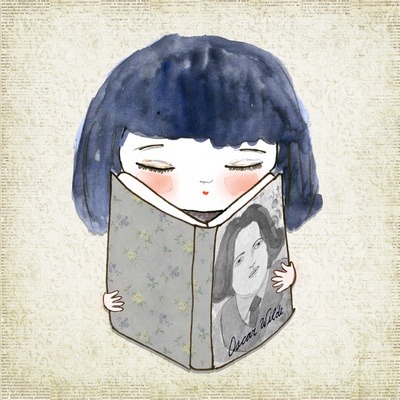
Photo Source:
http://25.media.tumblr.com/d83386379eaa5c1723969bf2e7e4395b/tumblr_mjq338VBvv1s4anc7o1_400.jpg
Every writer is a reader and every reader is a writer. Really. Not every writer writes stories or poems or magazine articles. Some write technical papers, reviews, emails, grocery lists, Facebook entries. Any kind of writing makes you a writer. A reader, though, is special.
- A reader is the only reason books are read. They give the book worth.
- A reader changes a writer. The simple act of buying a book tells the writer that what she/he does is worthwhile. That someone besides the writer cares.
- A reader can change future books. When a reader gives feedback through ratings, reviews, or emails, the writer learns what the reader likes and does not like. The writer then decides if the reader's feedback can help the writer better articulate the writer's vision.
- The reader grows as a person by being a reader. There are ideas in books, not just stories. Ideas that a reader can consciously or unconsciously incorporate into the reader's worldview. Attitudes about people, violence, love, good and evil, and perseverance.
A reader is a very special person, not just in view of sales, but in light of what the reader can do for the world. Books are a way to limit and expand a reader's potential. Even the most escapist book can affect a reader in profound or subtle ways. A reader has little or no responsibility for a writer unless the reader chooses to become involved. But a writer has a duty to every reader who picks up that writer's books. To provide a good time. To present ideas that will let the reader grow as a person. To be a writer that the reader can depend on to fulfill that reader's wants and needs.
